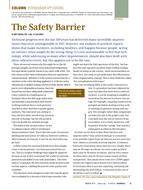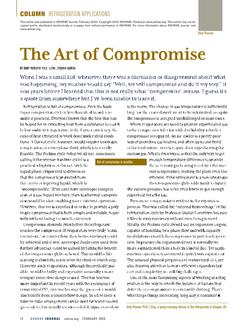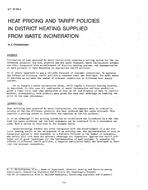Energy auditing of existing buildings, e.g., the EnerGuide for Houses in Canada, especially under the impetus of utility companies and government agencies, is becoming widespread. It has been noticed, however, that recommendations from such audits regarding the building envelope are either nonexistent or not implemented by building owners. A pilot project including various types of buildings, i.e., 22 single-family houses, 8 multi-unit residential buildings, and 15 commercial and institutional buildings, was developed to evaluate the impact of including an infrared thermographic analysis to the traditional energy efficiency auditing in terms of implementation of recommended measures and identification of additional energy savings.
The two main technical aspects of the project aimed at evaluating:
- the additional potential energy savings resulting from an increased motivation of the building owners or managers to reduce building envelope heat losses following the infrared analysis compared to their motivation following a traditional energy efficiency audit and
- the efficiency of infrared thermography to target energy efficiency measures compared to the targeted measures resulting from traditional energy efficiency audits.
This paper presents the criteria used for building selection, the protocol developed for the infrared thermography analysis, the interviews, and analysis of the energy impact of recommended measures. The results of the study present the added value brought by the use of thermographic analysis in terms of added energy savings vs. cost of measures. The latest results indicate that the extra cost of adding thermography is counterbalanced by the efficiency of thermography to detect weak points in the envelope and to convince owners of the energy savings potential. This program was developed and supported by the Energy Efficiency Fund, whose mandate is to promote energy efficiency among buildings heated by natural gas.
Citation: Thermal Performance of Exterior Envelopes of Whole Buildings IX
Product Details
- Published:
- 2004
- Number of Pages:
- 14
- File Size:
- 1 file , 5 MB
- Product Code(s):
- D-BldgsIX48


